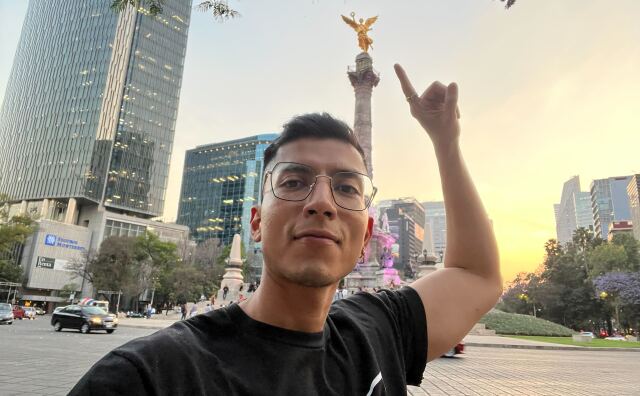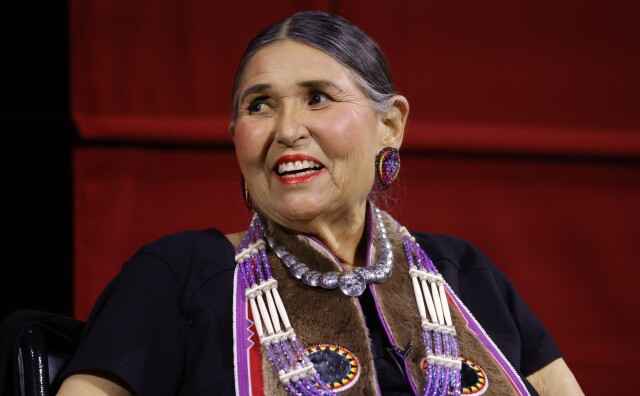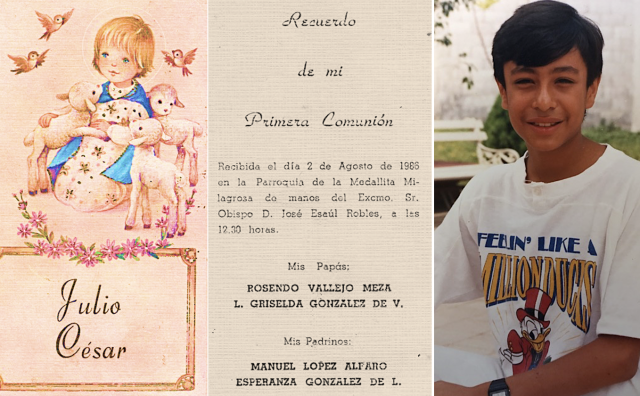"Gringo, gringo, gringo!"
The chant came from the carport, maybe twenty voices in unison, summoning me to dance.
Almost everyone there knew my name. I had spent the past seven months living with my then-in-laws in Puerto Rico, visiting, talking to, and getting to know them. But after nine months, I was still just "el gringo." It was practically my nickname. Despite being Puerto Rican, I was not Puerto Rican enough. I would never be.

When one of the cousins came to pull me into the carport to dance, I flipped him off and tossed back a coffee mug of rum. I did not dance that night.
-
From June 2020 to July 2021, we published your stories each week to continue important conversations about race/ethnicity, identity and how both affect our lived experiences. We now have a new series Being American, which is again soliciting your essays.
-
Read:
I've always inhabited a strange, somewhat tenuous space in the world around me, straddling two different cultures without really belonging to either fully. From the limited sample of my friends and family, this is a common experience for people like me.
My father is from Cabo Rojo, Puerto Rico, con ojos marrones y piel canela. My mother is from the Bay Area, blue-eyed and pale-skinned, a gringa. My family is a sprawling mess of a blended family. I have four half-siblings from my parents' prior and subsequent marriages. Between us, we have roots that range from Puerto Rico to Mexico to the Midwest. Explaining my family relations practically requires a chart.
My parents never really taught me Spanish, though they both speak it. I grew up mostly in Highland Park and El Sereno, in the 1980s and '90s when, apparently, parents were told not to introduce a second language to their young children because it would confuse them.
My experience growing up in my neighborhoods was anything but gringo. Gang violence, tagging, drive-by shootings, and the ever-present fear of almost random violence was a fact of daily life. When my brother was in high school, he was jumped by what he would only describe as three or four carfulls of grown men -- his punishment for being seen as being friends with someone who crossed them. My older sisters had friends killed in gun violence while still in their teens. The '90s were a different time, and I try not to roll my eyes too hard when I hear more recent transplants complain about how "L.A. has gotten worse lately."
As a child, I was "el rubio" or "güerito" to my neighbors, family friends, and members of my family. And even after learning Spanish, because it is imperfect, I am still not quite Latino enough for those who know me.
Perfect strangers generally take me in stride, but my more personal connections -- like my former in-laws that I lived with in Puerto Rico -- are colored by, well, my color.

To each side of my heritage, I am vaguely exotic, vaguely untrustworthy. Always there, never really belonging. That is my Tuesday.
The story of how I found myself in this sometimes awkward position as a "gringo" who really isn't one is, in many ways, the story of 20th century America.
TWO GRANDFATHERS, TWO VETS, TWO ETHNICITY-BASED OUTCOMES
The G.I. Bill And Land Ownership
My maternal grandfather, Jim, was, for his time, a giant of a man at about six feet tall, with piercing blue eyes and a love of books. He grew up in a small logging town and railroad junction in Washington state.

His father was a train engineer who, despite apparently being born and raised in Minnesota, spoke primarily German and accented English, the product of the proud tradition of bilingual education in 19th century America that we often forget about in modern debates over the subject.
Grandpa Jim enlisted in the military as soon as he turned 18 -- just in time for World War II to start. He had been stationed at Pearl Harbor, and shipped out shortly before the bombing that led to the United States entering the war. After his stint in the military, and a few near-misses, he took advantage of the G.I. Bill to become an engineer and, though it's difficult to confirm, he likely used loans for veterans to purchase a modest house in Tiburon, Marin County, which is now one of the most expensive areas in the country.
I have fond memories of spending weeks at a time visiting my maternal grandparents in Tiburon, wandering my grandfather's garden and picking blackberries with my older brother, Danny. I also remember learning from my parents that my grandmother Kay sometimes hid my caramel-colored, half-Mexican brother from the neighbors, because she was worried about what the neighbors would think. It is a strange thing to know that someone who supposedly loves you is also deeply ashamed of you.
Caña, 'La Operación,' and Migration
My paternal grandfather, Pepe, was a small man who at his peak might have been a hair over five foot three inches, spoke broken but passable English, and was always quick with a bad pun or situationally funny quip.
Abuelo Pepe stopped going to school after elementary to work in the sugarcane fields.

Like my maternal grandfather, he also served. He was drafted into the military during World War II, despite not having the right to vote, due to the pure chance of being born in Puerto Rico -- one of the many oddities of the "special relationship" between the United States and one of its few colonial holdovers. He never wanted to talk about his service.
After the war, he married my grandmother Lucy, and they had three children over the course of about three years.
Then, none.
When I asked why as an adult, my father told me that it was because my grandmother, along with her sister, was part of the American government's forced sterilization program that affected large numbers of women in Puerto Rico.
My grandmother's forced sterilization was the driving force behind the family's move to New York in the early 1950s. Why they decided to come to the place that had forced sterilization upon them, I can only guess.
Abuelo Pepe, due to language limitations, a lack of familiarity with the system, and probably a bit of discrimination, never got to take advantage of the G.I. Bill, and never owned property other than a small plot of land in Puerto Rico. He lived most of his life in rent-stabilized apartments in Spanish Harlem, where my father grew up in the 1950s and '60s.
Because my paternal grandparents lived across the continent, and air travel was relatively expensive when I was growing up, I only saw them a handful of times in my life.
'MEJORANDO LA RAZA'
An odd, but relatively harmless aspect of my life is that I have been exoticized by people around me for both sides of my heritage.
"Where are you from?" The dreaded question. It's never asked because the asker wants to know that I was born and raised in L.A. It's always code for "something's not quite white, what gives?"
MORE FROM OUR RACE IN LA SERIES
- Life Beneath Hollywood's 'Bamboo Ceiling'
- Boricua At Home, Black In The World: An Afro Latina in LA
- As A Black Nurse At The Pandemic's Frontlines, I've Had A Close Look At America's Racial Divisions
- 'What Are You?' 'Are You Adopted?' A Biracial Black Woman Gets Real About The Questions People Have The Nerve To Ask
- Reading While Black, And Other Ways To Court Trouble
- Reparations And Reinvestment: Contemplating The Proverbial '40 Acres And A Mule' Today
- Claiming My Dignity On A San Fernando Valley Street
- The Day My Brother Learned To Fly
- In The Process Of Becoming American: A Proud Son Of Immigrants Reflects On His Family's Past And Future
- 'Black Enough?' Mixed Musings On My Skin Color, Hair, and Heritage
- Please Do Not Call Me A 'Mutt' (Not Even You, Mom)
- Connecting Family Stories: A Latina Angeleña Explores Her Deep California Roots
- How To Participate In Our Series
Over the years, I have had perfect strangers ask if I was -- well, a lot of things. Moroccan. Jewish. Russian. Spanish. Armenian. Italian. Egyptian. From vaguely somewhere in the Balkans. If it's within 500 or so miles of the Mediterranean basin, someone has probably placed me there, and a surprising number of them have approached me to ask, completely out of the blue.
Several years ago, I was in a museum when a woman tapped me on the shoulder to ask me a pressing question. "Sorry to bother you, but what ethnicity are you?" After I told her, she admitted it was a weird question, but that her mother said I reminded her of men from her home country, Croatia, I think. They had been arguing over it for a couple of minutes.
Once, when meeting the family of a Latina girlfriend for the first time, her aunt slapped her arm with an "Ay mija, estas mejorando la raza" ("Girl, you're improving the race"), a not uncommon sentiment among Latinos that being fairer-skinned is somehow better.
Another time, I was going to meet a non-Latina girlfriend's parents for the first time, and asked what to expect. "Oh, don't worry. You're white. They'll love you." The specifics apparently didn't matter.
I've had dates gush over my Latino heritage and the fact that I speak Spanish: "So exotic." "So sexy." So weird. The older I get, the more uncomfortable it makes me.
'FUNCTIONALLY WHITE,' BUT THINK BEFORE YOU TALK
Yet to the extent that prejudice comes up in my day-to-day life, on balance, it usually works out in my favor. I generally do not face the issues that my darker siblings and friends have to confront, because to most of the world, I am functionally white.
Few people have ever found me threatening, everyone assumes I speak English, and I can't think of many times when I have been hit with racist insults.
There's a flip side to this. Despite me being very open about my heritage, people are often surprisingly candid about their prejudices, including against other Latinos -- everything from who and how many people should be deported to explaining away systemic socioeconomic differences with simplistic theories about "hard work" and "bootstraps."
I usually try to be polite, but my follow-up questions usually make my views on the topic -- and my background -- pretty clear.

Over the years, I have come to realize that how people react to me is a reflection of either what they want to see or who they are. The real me is a little messy, my family history requires a chart, and I'm definitely tired of explaining it.
I have come to accept that I will always be "el güerito," pero tambien se de donde vengo.
ABOUT THE AUTHOR:
Brandon Ruiz was born and raised in Los Angeles. Brandon has lived in Puerto Rico, Santa Cruz, Calif., Washington D.C., and Illinois before returning permanently to Los Angeles. He is an employment attorney who represents employees in discrimination, harassment, and retaliation claims. Brandon is also a dedicated bookworm and listens to music almost every waking hour.








